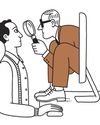
Whose P.R.-purposed apology was Wh worse? Al Franken's or Louis C.K.'s? The Equifax C.E.O.'s (for a cybersecurity breach) or Papa John's (for a racial slur)? Awkwafina's (for cultural appropriation) or Lena Dunham's (for Lord knows what)? At SorryWatch.
com and @SorryWatch, Susan McCarthy and Marjorie Ingall have been judging the adequacy of apologies and welcoming "suggestions for shaming" since 2012. "There are a lot of awful apologies out there," the SorryWatchers write.
"Apologies that make things worse, not better. Apologies that miss the point.
Apologies that are really self-defense dressed up as an apology. Apologies that add insult to injury. Apologies that are worse than the original offense.
Apologies so bad people should apologize for them." McCarthy and Ingall are releasing a new book next year, "Sorry, Sorry, Sorry: The Case for Good Apologies." Meanwhile, on their Web site they've got rules-"Six steps to a good apology" and categories for classifying defective ones: "Be VEEERY CAAAREFUL if you want to provide explanation; don't let it shade into excuse." Heaven forfend.
Esta historia es de la edición November 14, 2022 de The New Yorker.
Comience su prueba gratuita de Magzter GOLD de 7 días para acceder a miles de historias premium seleccionadas y a más de 9,000 revistas y periódicos.
Ya eres suscriptor ? Conectar
Esta historia es de la edición November 14, 2022 de The New Yorker.
Comience su prueba gratuita de Magzter GOLD de 7 días para acceder a miles de historias premium seleccionadas y a más de 9,000 revistas y periódicos.
Ya eres suscriptor? Conectar

MEAN TIME
“Hard Truths.”

ENLIGHTEN ME
The secret beauty of mandalas.

THE BEST OF THEM
His was a genius for the ages. Will Gottfried Leibniz ever get his due?

DEATH CULT
Yukio Mishima’ tortured obsessions were his making—and his unmaking.

Prophecy
The night of Dev’s twenty-second birthday, he was invited to sit with the elders after dinner.

A TALE OF TWO DISTRICTS
Lauren Boebert and Colorado’s red-blue divide.

THE TIKTOK TRAIL
Andean migrants draw others to the U.S. with videos depicting themselves as living the American Dream.

LOVE AND THEFT
Did a best-selling romantasy novelist steal another writer's story?

OUR NEW TWO-FACTOR AUTHENTICATION SYSTEM
Our two-factor authentication system is expanding because text messages and e-mailed codes are becoming less secure. Also, we’re committed to making sure your log-in process is more of a hassle than it needs to be.

STILL PROCESSING
Why is the American diet so deadly?